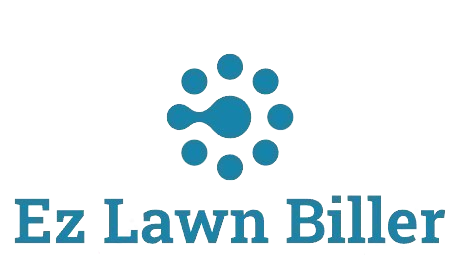Stay Compliant: Tips for Lawn Professionals
As a lawn care professional, operating within the bounds of local, state, and federal regulations is not just a best practice—it’s essential for your business’s longevity and success. Compliance ensures that you maintain a good reputation, avoid legal issues, and provide quality services that meet safety and environmental standards. In this blog post, we will delve into the key compliance areas that lawn professionals should focus on, and provide actionable tips to help you stay compliant while growing your business effectively.
Compliance in the lawn care industry encompasses various aspects including pesticide application, labor laws, vehicle regulations, and environmental protections. Each of these areas requires attention to detail and ongoing education to ensure that you are meeting the necessary standards. This article will equip you with the knowledge and strategies you need to navigate these complexities and build a reputation as a trusted lawn service provider.
From understanding the importance of licensing to implementing safe practices, every lawn professional must stay informed about the regulations that impact their operations. We’ll also explore the benefits of using tools like lawn billing software to streamline your processes and improve compliance management. Let’s dive in and explore the essential tips to keep you compliant in your lawn care business.
Understanding Licensing and Certifications
The first step towards compliance is ensuring that you have the correct licenses and certifications to operate legally. Depending on your location, you may need specific licenses for pesticide application, landscape design, or general lawn care services. Each state has different requirements, so it’s crucial to check with your local regulatory body.
For example, in many states, applying pesticides without a license can lead to severe penalties. An estimated 50% of states require lawn care operators to obtain a pesticide applicator license, which includes passing an exam and completing ongoing education. Research your state’s regulations and ensure that you and your team are properly licensed.
Additionally, consider investing in certifications from recognized organizations, such as the National Association of Landscape Professionals (NALP). These credentials not only boost your credibility but also enhance your knowledge on safety and compliance practices that are essential in the industry.
Implementing Safe Pesticide Practices
Once you’re properly licensed, the next step is to implement safe pesticide practices. This involves understanding how to handle chemicals responsibly, adhering to safety regulations, and ensuring the safety of your clients and the environment. When applying pesticides, always follow the manufacturer’s instructions and adhere to local laws regarding application rates and timing.
Moreover, proper training for your staff is vital. Educate your team on the risks associated with pesticide use and how to mitigate those risks. This includes wearing appropriate personal protective equipment (PPE), understanding the importance of label comprehension, and knowing how to respond to pesticide spills or accidents.
Utilizing technology can also streamline your pesticide management practices. Software solutions, such as lawn service software, can help you track pesticide applications, maintain inventory, and ensure compliance with reporting requirements. This can significantly reduce the risk of human error and enhance your operational efficiency.
Understanding Labor Laws
As your lawn care business grows, it’s essential to stay compliant with labor laws. This includes understanding employee rights, wage regulations, and safety standards. Familiarizing yourself with the Fair Labor Standards Act (FLSA) and other relevant laws can prevent legal issues and improve workplace morale.
Ensure that your employees are classified correctly—whether they are full-time, part-time, or independent contractors—as this affects their rights and your obligations. Additionally, maintain accurate records of hours worked and pay rates to comply with wage and hour laws.
Furthermore, create a safe working environment by following OSHA guidelines. Regular safety training sessions can help your team understand workplace hazards and how to avoid them, fostering a culture of safety within your organization.
Vehicle and Equipment Compliance
Compliance extends beyond regulations related to labor and pesticides; it also includes proper vehicle management. Ensure that all vehicles used for your lawn care operations are properly registered, insured, and maintained. Regular inspections can prevent breakdowns and costly repairs, ensuring your operations run smoothly.
In terms of equipment, make sure that all tools and machinery comply with safety standards. This includes maintaining equipment in good working condition and training your staff on proper usage. Non-compliance can lead to accidents that may have legal repercussions and affect your business’s reputation.
Additionally, consider implementing a system to track maintenance schedules and equipment usage. This can help you stay compliant with safety regulations and ensure that your equipment remains reliable and safe for use.
Environmental Protection Practices
Environmental compliance is increasingly significant in today’s eco-conscious landscape. Taking steps to minimize your ecological footprint can not only keep you compliant with environmental regulations but also enhance your reputation with clients who value sustainability.
For instance, consider using eco-friendly fertilizers and pest control methods that reduce harm to the environment. Additionally, implementing practices such as grasscycling (leaving clippings on the lawn) or using organic materials can improve soil health and reduce waste.
Furthermore, educate your clients about sustainable lawn care practices. By incorporating eco-friendly solutions into your services, you demonstrate your commitment to environmental stewardship, which can attract more customers.
Leveraging Technology for Compliance
Utilizing technology can greatly enhance your compliance efforts. Tools such as lawn service apps and lawn billing software can help you streamline operations, manage client information, and maintain accurate records. This not only improves efficiency but also ensures that you are meeting all compliance requirements.
For example, by automating your billing process with a platform like EZ Lawn Biller, you can easily track services provided, manage client payments, and keep records organized. This reduces the risk of errors and simplifies audits, should they arise.
Moreover, using a lawn company computer program can aid in tracking employee training sessions, pesticide applications, and equipment maintenance schedules, ensuring that every aspect of your business is compliant.
Maintaining Records and Documentation
Maintaining thorough records and documentation is another key element of compliance. From employee training logs to pesticide application records, having accurate documentation can protect your business from legal issues and demonstrate your commitment to compliance.
Establish a standard operating procedure for record-keeping that includes detailed logs of services rendered, chemicals used, and employee training. Regularly review and update these records to ensure they remain current and accurate.
Additionally, consider leveraging cloud-based storage for your documentation. This allows for easy access to important records and can facilitate compliance audits, as all information is organized and readily available.
Regular Training and Continued Education
Compliance is not a one-time effort; it requires ongoing education and training. Regularly update your knowledge about industry regulations and changes in the law. Participate in workshops, webinars, and industry conferences to stay informed about best practices and compliance requirements.
Encourage your team to pursue further education and certifications to enhance their skills. This not only strengthens your workforce but also increases your business’s reliability and trustworthiness in the eyes of clients.
Consider implementing monthly training sessions that cover different aspects of compliance, from pesticide safety to labor laws, ensuring that your team remains up to date on essential practices.
Building a Culture of Compliance
Creating a culture of compliance within your lawn care business is vital for long-term success. Leaders must model compliance behavior and communicate its importance to the entire team. Establish clear policies regarding compliance and ensure that all employees understand their roles and responsibilities.
Encourage open communication about compliance issues and potential challenges. Create an environment where employees feel comfortable reporting concerns or asking questions. This proactive approach can prevent compliance issues before they escalate.
Moreover, consider integrating compliance objectives into performance evaluations. Recognizing and rewarding employees who contribute to a culture of compliance can further reinforce the importance of adhering to regulations.
Conclusion
Staying compliant as a lawn professional is crucial for the success and reputation of your business. By understanding licensing requirements, implementing safe practices, and leveraging technology, you can navigate the complexities of compliance effectively.
From maintaining accurate records to fostering a culture of safety and education, the strategies outlined in this article will help you manage your lawn care operations more efficiently while ensuring adherence to regulations.
As you continue to grow your business, remember that compliance is an ongoing commitment. By prioritizing these practices, you will not only protect your business but also enhance your credibility and client satisfaction. Embrace the tools available, like the [Lawn Biller Software](https://ezlawnbiller.com/), to streamline your operations and promote compliance in every aspect of your lawn care services.




